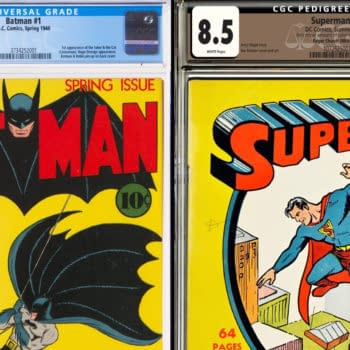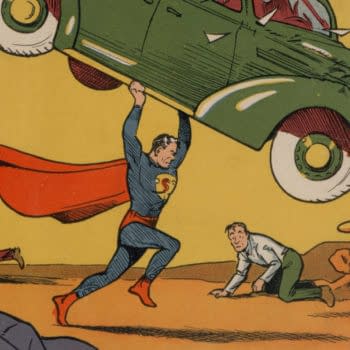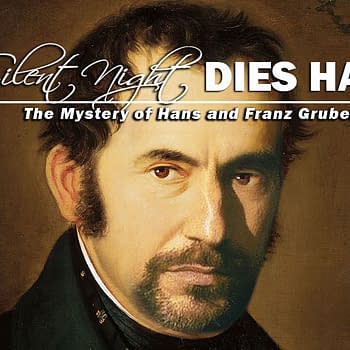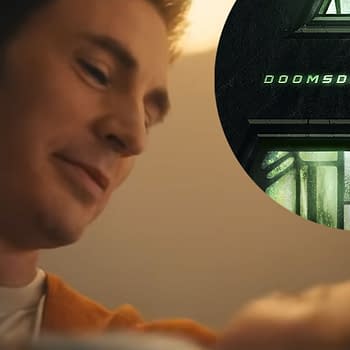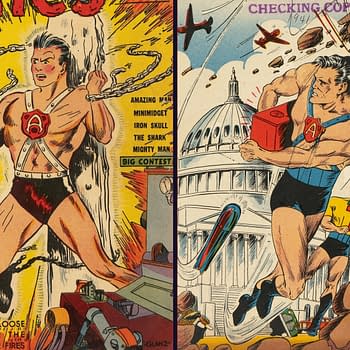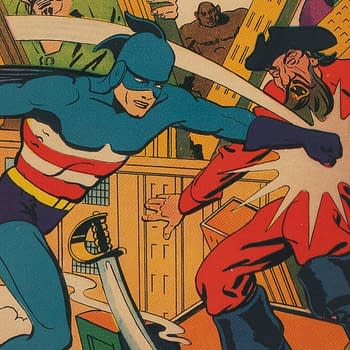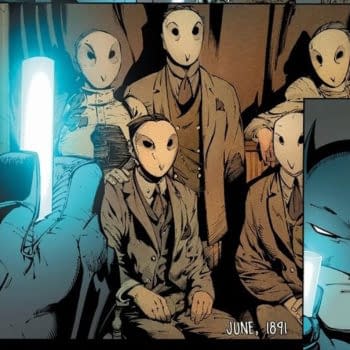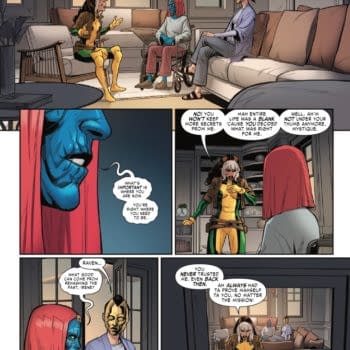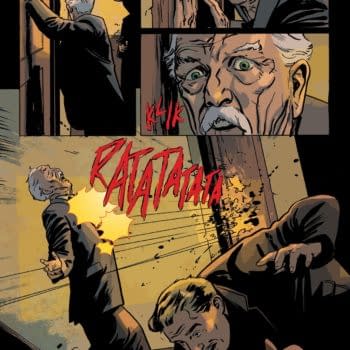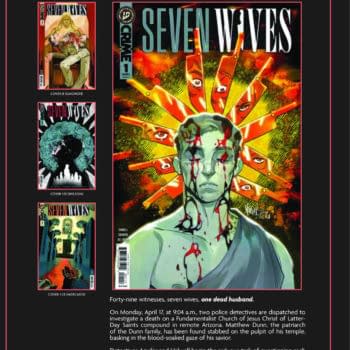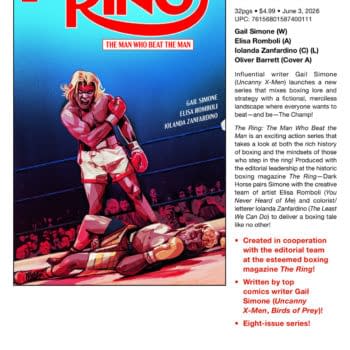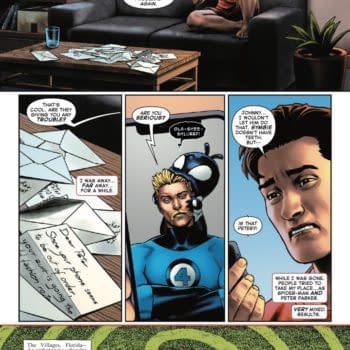Posted in: Comics, Recent Updates | Tagged: jack kirby, marvel
Marvel Doesn't Want A Jury To Decide On Kirby Family Quest To Terminate Marvel Copyrights

Now, if the case does go to trial, Marvel seeks to have it tried before the court without a jury.
On January 28, Marvel filed a memo with the court arguing that precident — including a case involving Captain America co-creator Joe Simon — suggests that defendants in such cases are not entitled to a jury trial.
The period in question would include characters and teams such as the Fantastic Four, the X-Men, Hulk, Thor, Iron Man, and the Avengers. The January 28 memo's preliminary statement provides Marvel's version of what this is all about:
This case was set into motion two weeks after Disney announced its plan to purchase the Marvel companies when Defendants – the children and legal heirs of comic book artist Jack Kirby – served forty five notices (the "Termination Notices"), claiming to have future copyright ownership rights to various Marvel comic books published between 1958 and 1963 (the "Works") featuring many famous characters, including The Fantastic Four, The Incredible Hulk, The Mighty Thor and The X-Men. The Termination Notices assert that Kirby transferred his rights in the Works to Marvel's predecessor in 1972 and that Defendants seek to "recapture" those rights by invoking the provisions of section 304(c) of the Copyright Act of 1976 (the "Copyright Act"). However, under federal copyright law, because the Works were created as works made for hire, Marvel is the author, Kirby never had any rights to transfer, there is nothing to recapture, and the Termination Notices are invalid.
The crux of Marvel's argument on the jury issue:
Under well-settled case law, claims for a declaration as to future ownership rights such as the parties seek here are quintessentially equitable in nature and not triable to a jury. Defendants' jury demand is invalid under the Constitution and Supreme Court precedent. The Seventh Amendment limits the right to a trial by jury to "Suits at common law," U.S. Const. amend. VII, – i.e., only for actions at law. Granfinanciera, S.A. v. Nordberg, 492 U.S. 33, 41 (1989). In contrast, suits in equity are beyond the reach of the Seventh Amendment and do not trigger the right to a jury. Id.; see also, e.g., Sullivan v. LTV Aerospace & Defense Co., 82 F.3d 1251, 1259 (2d Cir. 1996), abrogated on other grounds by McCauley v. First Unum Life Ins. Co., 551 F.3d 126, 132 (2d Cir. 2008); Update Art Inc. v. Maariv Israel Newspaper, Inc., 635 F. Supp. 228, 230 n.2 (S.D.N.Y. 1986).
Marvel further notes that when Joe Simon served notice in 1999 to terminate his transfer of Captain America copyrights to Marvel/Timely, the court determined that it was not a matter for a jury trial:
Indeed, a court in this District considered this very issue in a very similar factual situation. In Marvel Characters, Inc. v. Simon, 00-CV-1393 (RCC) (S.D.N.Y.), Marvel sought a declaratory judgment that certain works published by Marvel to which comic book writer Joe Simon had contributed were created as works made for hire and, thus, termination notices that Simon had served on Marvel pursuant to section 304(c) of the Copyright Act were invalid. The court held that the defendant was not entitled to a jury trial where, as here:
"The only remaining claim in the case is plaintiff's claim for a declaration that defendant's copyright termination notices are invalid because defendant is not the author of the works in question for copyright purposes. Because there is no claim for damages, the court concludes that this action is more akin to a quiet title action than an ejectment action. The relief being sought is equitable in nature; plaintiff's motion [to strike the jury demand] is therefore granted."
However, it is worth noting that this matter did not come to trial. Marvel settled with Simon over the issue in 2003.
Here's the entirety of the memo, with thanks to Martin Schwimmer for bringing it to light:




